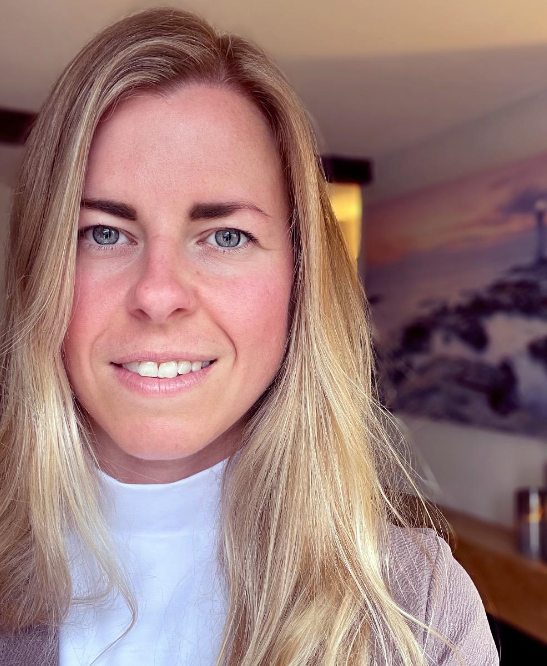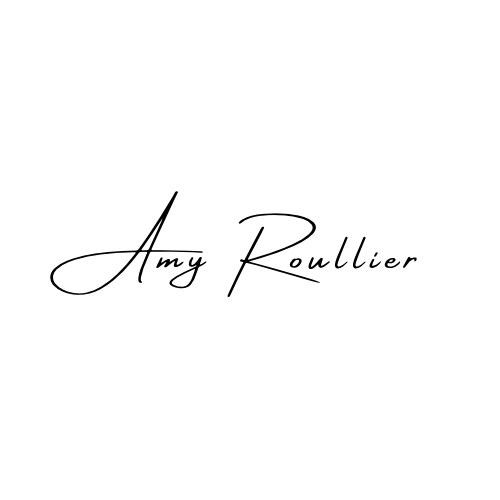My mental health problems have been with me since I was a teenager, but I’ve mostly lived with them as a secret companion. Despite being diagnosed with depression in my late teens, having struggled with anxiety and negative thoughts as I’ve grown older, plus joyous recurrent bouts of depression. I don’t talk about what I’ve been through because I still feel a real sense of embarrassment at admitting these are things I have struggled with. Even now, in my late thirties, I rarely share. But why do I feel so embarrassed of something that affects so many of us?
Maybe I’ve grown too used to my exterior ‘happy’ image being the easier one to share with other people. So letting go of that, admitting that I’ve struggled sometimes, it feels like a vulnerable place to put myself in. In part, I worry that people will see me as weaker, less able, not as resilient or strong. That anyone whose been fortunate enough not to struggle, will see me as someone banging on about mental health as if it’s an annoying thing to talk about it.
I’ve not had a diagnosed phase of depression since my teens
Because I still feel ashamed to go to the Doctors to talk about it. I suppose as I’ve gotten older I thought I’d have it more figured out, I’d have found a remedy. I know this isn’t good, however my experience back then was also so negative.
Trying to explain my dark thoughts to adults who viewed me simply as a teenager who had no reason to be battling mental health issues at that time. Couldn’t relate or understand. Didn’t know how to support me, and would have preferred me to just get better, quickly. Means I’ve learned to hide anything I’ve been going through pretty well and deal with it myself, behind closed doors. To not talk about it openly. But being too embarrassed to admit I’m having mental health issues has led my mental health to escalate sometimes. Not talking, wasn’t good. Feeling isolated in it, really really not good.
Socially, there was little understanding about mental health problems
If you struggled, you were expected to get on with it. Or if you couldn’t hide those battles, you were labelled ‘mental’ or a ‘psycho.’ All manner of detrimental terms that signified that you were ‘not right’.
I silently listened to people speak about others with mental health problems. They made jokes and laughed about them. Moaned about them being a burden. Or vilified them as someone to be careful of, as if their mental health problem was a contagious disease.
Both subconsciously, and consciously, these conversations chipped away at my idea of what people with a mental health problem looked like, acted and how they should be treated. And it created a lot of personal shame, because although they didn’t know it at the time, I was one of those people.
I might have looked happy, confident and altogether sometimes. But under the surface I have battled raging wars with myself
The truth is, no matter how I looked on the outside, on the inside, my mind has sometimes felt as if it’s totally against me. And it comes on so unexpectedly.
I could be having a great week, month, year, few years, and then this dark cloud seems to envelope my thoughts. ‘Where the fuck did you come from?’ I think. But there’s no answer to that question. It’s just fight on. Get through each day. Try to reach a place where the darkness isn’t consuming again. And hope I get to the other side of it.
Despite the conversation surrounding mental health coming on leaps and bounds since I was first diagnosed with depression, and even back then, I’m sure my experience was a hell of a lot less prejudiced than I imagine people faced before my time. Speaking about this topic, comes with a lot of personal angst at how other people might perceive me. But do they really judge me like this nowadays or is it more about my own self-perception and fear of judgement when it comes to speaking about my mental health?
In part, I think I struggle to share because I feel at odds with what I perceive as being ‘normal’
Stories in my head create a ‘me’ and ‘them’ narrative. I am damaged, but everyone else is not.
I see my thoughts as off kilter to those around me. My energy and mood aren’t quite on the same par and I feel a bit like my mind is broken in some way. It leads to a lot of self-judgement for myself. And then overwhelming shame and embarrassment that I don’t seem to operate mentally like everyone else. Its pretty convincible at times, this story my mind manifests. In that there is a level of ‘normal’ and I, don’t appear to be it.
The trouble is, this mindset is also very isolating.
When I’m going through a particularly low patch, I tend to think, ‘Why can’t I just be like everyone else?’ ‘What’s wrong with me?’.
I’ve often wondered this. Why some people don’t struggle with mental health issues and others do? Why I can be happy and positive throughout some phases of my life, and sometimes feel a war within my own mind, where I’m just trying to get through each day and wade through what feels like a swamp of dark thoughts.
I also wonder why I feel a need to be seen as okay versus letting myself know it’s alright to struggle sometimes?
Is it a culture thing, a culture of expectations? That we feel we must be perfect all the time and do things in the right way? That we feel we must be the best and most successful we can be? Never to admit fault, weakness, or a struggle.
I do wonder, whether this contributes to my sense of shame, and makes me feel a little defective. And that shame in itself, is a destructive emotion. It feeds the cycle of negative thoughts. Especially when I’m labelling myself as ‘wrong’ compared to the ‘norm’ and feeling as if a norm exists in any case. And it increases that feeling of guilt and embarrassment to dare speak about this subject and burden anyone ‘normal’ with your internal conflicts.
In all honesty, we’re fortunate enough to live in a time where people are more accepting about mental health. There is slightly less stigma, and a lot more understanding out there. Yet it has a long way to go. Because the shame still exists, and it exists because it’s something we’ve created. I still feel embarrassed, because admitting a mental health struggle still comes with some level of embarrassment. Whether internally manifested or truly a societal perception of mental health problems. But all of these reasons, are entirely why I believe it does need more conversation.
I’d love to get to a point where I can talk about my mental health without feeling shame, less than, weak, inadequate or embarrassed. Or as if people will judge based on that honesty
I can’t imagine there are many people out there – especially since the pandemic – who haven’t suffered or are suffering, some form of struggle with their mental health.
Whether it be anxiety, social withdrawal, depression, PTSD, low or negative thoughts, OCD. Many of us will have experienced a pretty rough ride over the past few years. There is more honesty out there surrounding mental health. And a little more understanding about how mental health can go through periods of being good, and really not so good. That someone can appear okay, even when they absolutely are not. That it isn’t a one size fits all issue.
Maybe we do have more understanding about how many people are struggling with their mental health, and the different challenges and hurdles they are facing. We know some of the traits are the same, but that also doesn’t mean the journey is similar for everyone. There is no normal when it comes to each of our unique minds and thoughts.
I’ll keep sharing my mental health struggles
To try and talk about mental health more and make it easier for people struggling to get help. And to help myself, if I’m honest, to not feel a need to conceal what’s going on under the surface, and drown in that shame that feels extremely real and isolating. Because mental health stigma can only be eliminated if we have more open conversations.
Mental health issues are way more common than people might think
- 300 million people worldwide experience depression (WHO, 2017) In the US, the median age of depression onset is 32.5 years old. Nearly 50% of people diagnosed with depression, also have an anxiety disorder. 60% of children and adolescents with depression are not receiving any type of treatment. 35% of adults with depression receive no treatment at all and depression is one of the most common conditions in the United States. In the UK, around 1 in 6 adults are experiencing depression.
- Suicide is the 10th leading cause of death in the United States. 40% of all people who complete suicide, have made at least one previous attempt. In the US, Women attempt suicide twice as often as men. In the UK, men aged 50-54 have the highest rate of suicide.
- Every 40 seconds, someone takes their own life
- Over 8 million people are experiencing a anxiety disorder in the UK. 79% of people state work-related stress as a common cause of their stressful feelings with 74% feeling so stressed that they have been overwhelmed.
- Debt is a contributing factor to mental health problems, with over 1.5 million people experiencing both debt problems and mental health problems. Almost 40% of people with a mental health problem said it worsened with their financial issues (not something to be taken lightly in a current cost of living crisis).
- Martin Luther King Jr had depression and Princess Diana suffered from depression and bulimia. Leonardo DiCaprio and Danielle Radcliffe suffer with obsessive compulsive disorder.
- According to the World Health Organisation, a quarter of the world’s population will experience mental health problems at some point in their life.
- In the US, a 2021 study of college students reported over 73% of participants were experiencing psychological stress, and a further study made in 2022 revealed 88% of students believe there is a mental health crisis on college campuses.
- Despite the common misunderstanding, depression is not circumstantial, it is neurological. No-one asks to be depressed. It’s not a choice.
This data looks somewhat bleak for the state of mental health across the world
But I’m also choosing to view this as the following:
No matter how I feel at the time, I really am not alone with my struggles. Many people are experiencing mental health problems of one kind or another. So we don’t need to feel embarrassed, because there are so many people who we can talk to who will, in some way or another, understand.
Have you struggled or felt embarrassed about your mental health? Honestly, I totally get it. Let’s help one another to confront and reduce the stigma that surrounds mental health and get more comfortable speaking about it. Please share your comments, and thank you for sharing.

Amy Roullier
Amy Roullier is a British writer and author of Silent Reflections of a Fragile Heart. For her, writing began as personal therapy and has evolved into a way to connect with others. Based in Lincolnshire, Amy is an occasional vegetarian and a dedicated lover of carbs—her true soulmate. She’s currently navigating a mid-life crisis through running, and mornings are simply impossible without coffee.


